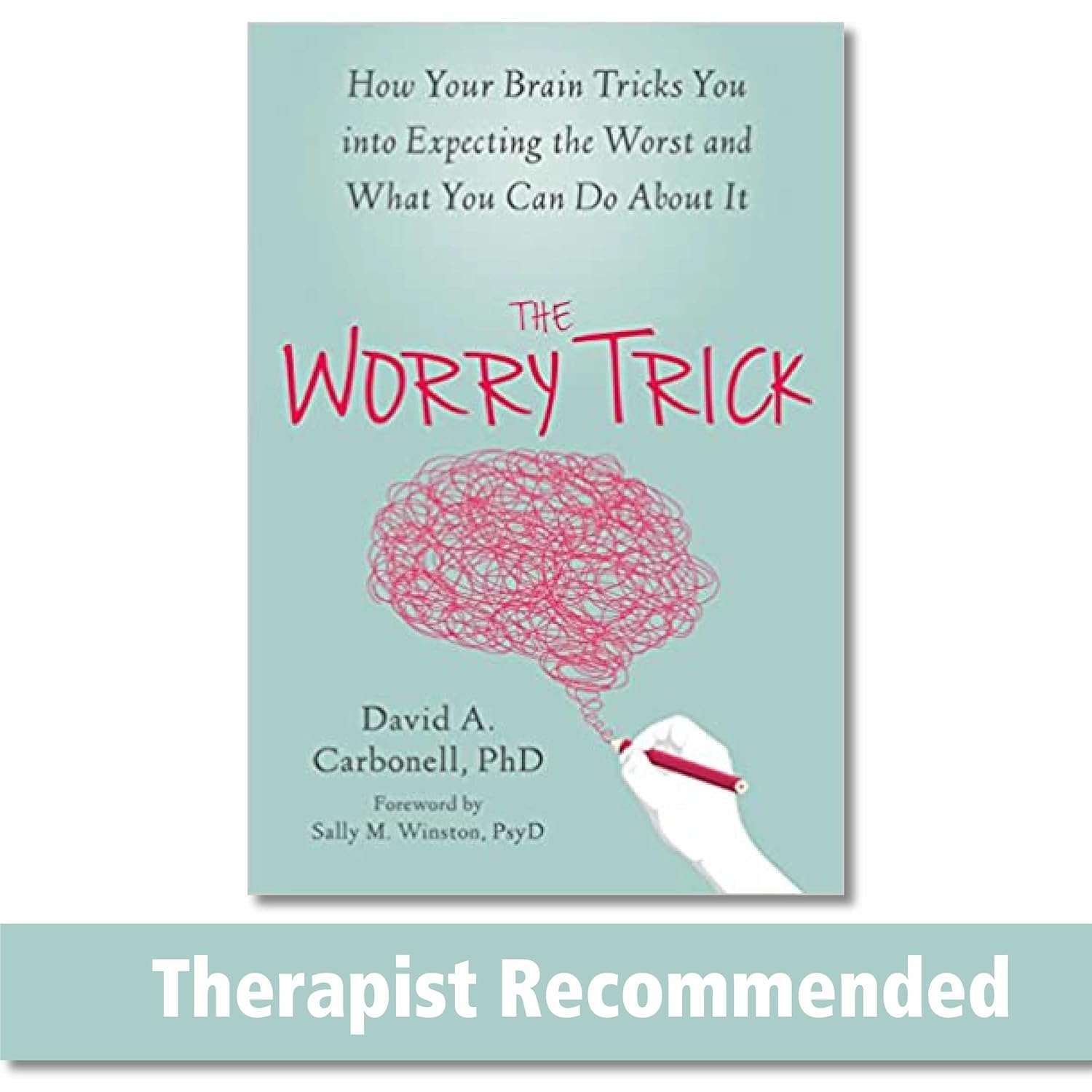About this deal
When are we motivated to distract ourselves from unpleasant and worrisome thoughts? When we’re not facing a clear and present danger. When the chips are not down. When the babbling of our cerebral cortex, rather than the self-defense of our amygdala, is center stage.” Third and finally, develop a daily habit of mindfulness meditation. This process of passively observing thoughts is quite popular, with plenty of resources to get started. If you’ve never tried it before, here’s your first lesson. If you find yourself arguing with yourself, there's one thing you can count on – you're not going to win this argument.” Chronic worry redirects much of your time, attention, and energy to worry rather than life. It leads you to spend more and more time “in your head,” in your internal world, trying to get your thoughts arranged the way you think they should be, always struggling and fussing with worry rather than getting out into your external world and living, doing whatever it takes to be the good parent, good friend, good employee, good neighbor, or good whoever you always wanted to be. It leads you to invest your time and energy in worry, and struggles with worry, rather than in being the person you wanted to be and living the life you hoped for. If you find yourself forgetting to breathe properly, use common signals from the world around you as reminders – a car horn or a phone notification, for example.
The thing is, we all go through life as if we know what to expect. Chances are tomorrow will be as regular and forgettable as the vast majority of other days in your life. A worry-free mind knows this. So if a doubt arises, it’ll leave just as easily.Your recognition that your worries are exaggerated or unrealistic doesn't help you if you continue to avoid what you fear anyway. If you avoid the object of your worries, you will become more afraid of them. What you do counts for much more than what you think.” What does the “what if” clause actually tell you? Say you’re thinking: “What if I’m in a car accident?” That’s not something you think at the moment that an accident happens. There’s no “what if” about it – it’s happening. Find a quiet place and sit comfortably for a minute or two, becoming aware of your thoughts and sensations. Lightly focus your attention on something constant – people usually use their breathing, but it can be anything. The sound of a fan for example.
The examples were short but on point and they served the purpose of each chapter, and I really like that because I don't see the point of a book (like self help books) which mostly contains stories and experiences of other persons. You only ever think “what if” when everything’s fine. The “what if” clause isn’t about self-protection. It doesn’t save you, or stop anything. It means “let’s pretend”. Let’s pretend I’m in a car accident.
The second book with this phenomenal book was just a way of breaking into the lights for me. To be able to understand worry in such a way and the perspective on it and run away from it or even try to stop it which is the ideal way everyone uses when they see worry coming their way. They see worry coming their way they definitely recognize it or even more so label it as danger and can’t handle even the slightest idea of having it. What are your options here? You could try arguing, but that’s just giving him what he wants – and what you don’t want. Ignoring him just makes him try harder. Hitting him is tempting, but probably not the best idea. If you keep trying to stop something but that just makes it worse, it means your methods need examining. You need to stop trying to change the worry itself. Instead, try changing the relationship that you have with worry.
 Great Deal
Great Deal 